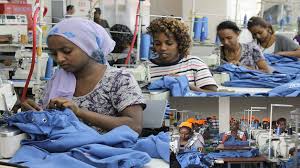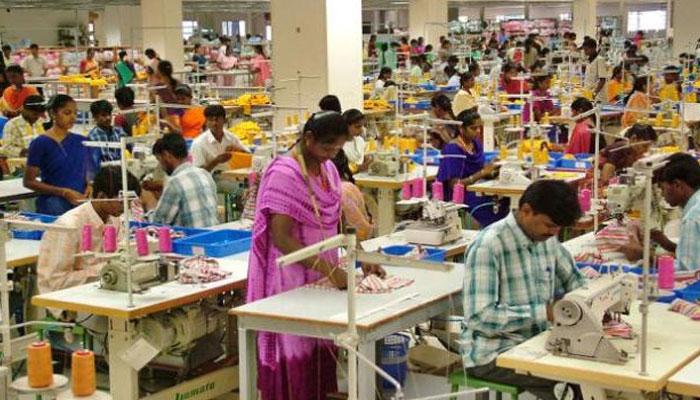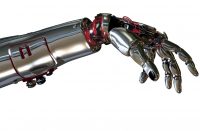At the end of May 2019 a study published by the Stern Center for Business and Human Rights at New York University drew attention to the demeaning conditions in the global clothing industry.
The report shows how monopoly capitalism (imperialism) exploits countries, both large and small, that try to develop economically, in particular impoverished countries that seek foreign investment by declaring themselves “open for business” and offer a vast and willing cheap labour force, suitable for exploitation.
The story and the strategy are similar all over the world. Monopoly capital is driven to scouring the world, seeking competitive advantage, establishing factories or local subsidiaries to compete against each other in securing orders, with unfair trading practices imposed by the imperial powers, such as the United States and the European Union. Factories are built, stuffed full of mainly young uneducated women recruited from villages, seeing factory work as a way out of poverty.
Ethiopia built the state-owned Hawassa Industrial Park, about 140 miles from Addis Abeba, in 2015–16. It is estimated that more than 25,000 people now work in the numerous factories, manufacturing garments for such global brands as Levi, Guess, and Tommy Hilfiger.
The Ethiopian government promotes this site as a place for securing cheap workers. A government brochure for potential foreign investors advertised: “Cheap and skilled labour: a seventh of China and half of Bangladesh.” In fact global retail companies can secure Ethiopian workers for even less. Some are being paid $26 a month, not much more than a quarter of the $95 a month minimum wage in Bangladesh.
The influx of workers to these factories has driven up the cost of accommodation: a single bare room within a few miles of the industrial estate costs about $52 a month.
The report states: “One young woman showed us the concrete ground-floor room she and three fellow-workers rent from a home-owner. There is no toilet, only an open-air latrine nearby. The woman said she and her room-mates work different shifts, and she’d had some of her belongings stolen. Sometimes there is no food left for her when she returns from the factory.

“All four women sleep on thin mattresses on the floor, and when it rains, water seeps into the living space. We heard from others at the park [industrial estate] that some employers hand out plastic sheets, which employees place between their mattresses and the concrete floor in an attempt to stay dry.”
Rural workers in particular, not being used to the monotony of factory production, find the conditions of life very hard. During 2017–18 attrition hovered at about 100 per cent, meaning that, on average, factories were replacing all their workers every twelve months.
The American firm PVH was among the first to move from Bangladesh. This is one of the world’s largest clothing chains, producing for such labels as Calvin Klein, Izod, and Tommy Hilfiger, with more than two thousand factories in forty countries. It has an annual income of $9.7 billion.
In Bangladesh, workers’ wages have increased a little over the last three decades, leading to the possibility that Ethiopia could become a permanent pool of cheap labour.
This is monopoly capitalism at work, securing massive profits from super-exploitation.
So the next time you cross the door of your trendy boutique, or you shop for cheap clothes in Penney’s, take a moment to think of the sheer exploitation it has taken to make the latest fashionable item.






